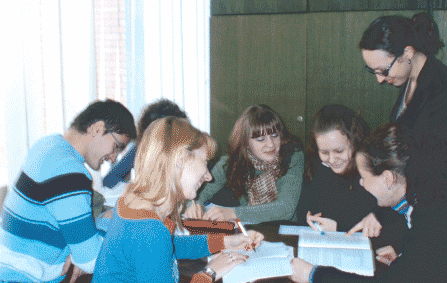Education
The Ruthenian language is one of the teaching languages in which, together with Hungarian, Slovak, Romanian and Croatian, regular instruction is carried out in primary and secondary education in Vojvodina, as well as in educational activities for preschool children and in teaching for students at the university level of education.
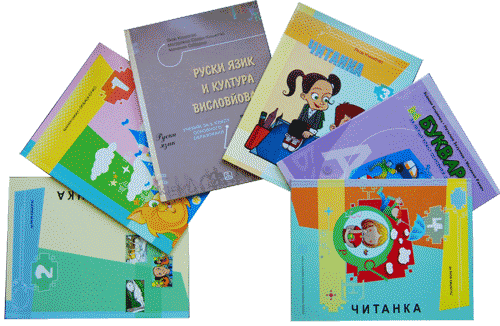
PRESCHOOL EDUCATION
Preschool education in the Ruthenian language has a tradition that is longer than a century and it has developed continually since 1902 in Ruski Krstur, and since 1905 in Kucura.
There are a children`s nursery, extended stay and educational groups for preparing children for school in Ruski Krstur. An educational group in which children are prepared for school in the Ruthenian language and extended stay for preschool children have been organized in Kucura and Đurđevo.
In places where there is no possibility of organizing regular educational groups in the Ruthenian language, it is taught as fostering the Ruthenian language with elements of national culture. Such educational groups have been organized in Kula, Novi Sad and Vrbas, and there is a plan to organize preschool fostering the Ruthenian language within the preschool departments in Bačinci, Berkasovo, Bikič Do and Šid.
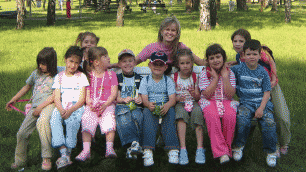
PRIMARY EDUCATION
The Vojvodinian Ruthenians founded the first school in 1753 in Ruski Krstur. The school in Kucura began to work in 1765, in Šid in 1818, in Novi Sad in 1823, in Bačinci in 1847, and in Đurđevo in 1880.
Regular teaching in the Ruthenian language from the I to the VIII grade is held in three settlements: in Ruski Krstur (Municipality of Kula), in Kucura (Municipality of Vrbas) and in Đurđevo (Municipality of Žabalj). Teaching in these places is wholly held in the Ruthenian language. The primary schools in Kucura and Đurđevo are bilingual, that is there are classes in the Ruthenian teaching language and classes in the Serbian teaching language.
Textbooks, manuals and literature for organizing teaching in the Ruthenian language have been published, and pedagogical documentation is kept in the Ruthenian language as well.
In other Ruthenian places where, because of a small number of pupils, there is no possibility of organizing regular teaching in the Ruthenian language, the Ruthenian language teaching with elements of national culture is organized.
It takes place in Bačka Topola, Gospođinci, Kucura, Kula, Novi Sad, Novo Orahovo, Petrovaradin, Savino Selo, Sremska Kamenica, Sremska Mitrovica, Subotica, Veternik, and in Šid where there are separate departments in Bačinci, Berkasovo and Bikič Do. The total number of places amounts to 16 and more than 330 pupils from 35 schools are included in them.
For pupils of primary school age who obtain remarkable results in learning the Ruthenian language the Republic Competition in the Ruthenian Language is organized.
Teachers and professors of class teaching, professors of the Ruthenian language and literature and professors of other subjects with the Ruthenian language knowledge are engaged in the process of teaching.
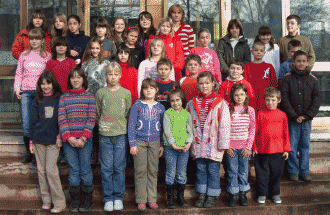
SECONDARY EDUCATION
A complete secondary school in the Ruthenian language was established in 1970 in Ruski Krstur – high school, with boarding accomodation for schoolchildren. It is the only high school in the Ruthenian language in our country and in the world, and since the nineties of the XXth century parallel teaching in the Serbian language has been organized.
The Ruthenian language teaching as an optional subject on the secondary level of education began in Novi Sad in the 2006/2007 school year and in Šid in the 2008/2009 school year. Schoolchildren of this age have been given a possibility of becoming acquainted with native language, literature, culture and professional terminology.
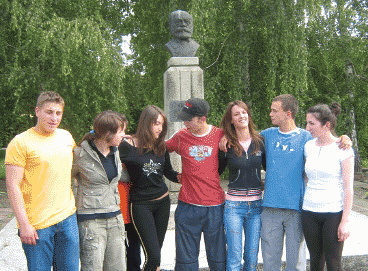
EDUCATION ON THE FACULTY LEVEL IN NOVI SAD
The Instructorship for the Ruthenian Language began to work in 1972 at the Faculty of Philosophy in Novi Sad, and the Department for the Ruthenian Language and Literature was established in 1981. Today it is the Department of Rusynistics (Оддзелєнє за русинистику). 32 professors of the Ruthenian language and literature have graduated since 1972.
